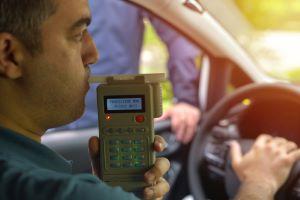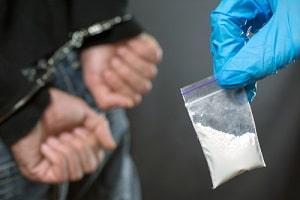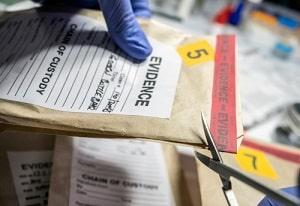Recent Blog Posts
If I Am Pulled Over In Texas, Do I Have to Submit to a Breathalyzer Test?
 When a police officer pulls someone over, they will often be looking to determine whether the driver is under the influence of alcohol or drugs. If an officer suspects that you are driving while intoxicated (DWI), he or she may ask you to submit to a few tests to determine your level of intoxication. But as a Texas driver, are you required to submit to such testing?
When a police officer pulls someone over, they will often be looking to determine whether the driver is under the influence of alcohol or drugs. If an officer suspects that you are driving while intoxicated (DWI), he or she may ask you to submit to a few tests to determine your level of intoxication. But as a Texas driver, are you required to submit to such testing?
Types of Sobriety Tests
There are several different types of tests that police officers may ask a driver to take, including preliminary blood alcohol tests and field sobriety tests that are meant to gauge the driver’s balance, reaction time, and ability to drive safely. These tests may include:
-
Nystagmus: This is often the first field sobriety test that officers will use, since it does not require the driver to get out of the vehicle or use any devices. The officer will place a pen in between the driver’s eyes, asking him or her to follow the pen with their eyes. This measures the driver’s ability to focus and follow directions.
New Bill Aimed to Create Advocates for Texas Domestic Violence Victims

Domestic violence has been a long-standing epidemic for American women and men, especially for Texans. In the past decade, awareness regarding sexual harassment and assault in the workplace has led to major changes when it comes to employee training and discipline, including for those in positions of power. One Texas legislator, in particular, has made it her priority not to just make these changes in the workplace, but also to help those who are victims in their own homes. In 2018 alone, there were 212,885 victims of family violence in Texas, not including the number of victims who go unreported. While 71.6 percent of these victims were female, men are also victims of domestic violence, but they often let this crime against them fly under the radar. Those guilty of domestic violence should undoubtedly be held accountable for their actions, but if you are facing false accusations, an experienced criminal defense attorney can help.
Texas Governor Targeting Human Traffickers at the Border

Since the Biden administration came into power just two months ago, immigration policies have changed from the previous administration’s “build a wall” mentality. Trump declared a state of emergency at the border at the beginning of 2019 to impose stricter immigration policies and reduce the influx of illegal immigration and crime along the Texas-Mexico border. One of President Biden’s first actions in office was to end this policy and cut the famous Trump administration’s border wall funding. Since then, Texas has seen a sharp increase in unaccompanied minors arriving at the border. Many believe that human traffickers are helping migrants cross the border, and Texas Governor Greg Abbott intends on getting to the bottom of things.
Increasing Security to Protect Children
This past week, Gov. Abbott referred to the recent influx of unaccompanied minors along the Texas-Mexico border as a “humanitarian crisis.” These migrant numbers have increased so much that the Dallas convention center is being converted into a temporary shelter for these children. The converted convention center housing thousands of migrant children will allow these young kids and teens to socialize and exercise after experiencing incredible trauma. The governor requested access for the Texas Department of Public Safety officers to the children so that they can interview the kids about their experiences and try to identify human traffickers. Gov. Abbott is adamant in obtaining this information so that “America can combat these human traffickers and prevent other children from being victimized.”
8 Individuals Accused of Transnational Drug Trafficking

Drug trafficking is never a one-man operation. In some cases, the drug sales may be moving locally across various hands while in others the drug trafficking operation can span across the globe. A federal grand jury in the Eastern District of Texas indicted eight individuals for their illicit involvement in an international drug trafficking conspiracy. Only one of the people involved is actually from Texas despite the case happening in a Texas court. So why is the case taking place in the Lone Star State and what are the charges being made?
Texas As Home Base
Eight individuals, including 40-year-old Carlos Villaurrutia of McAllen, Texas, were charged with conspiracies to manufacture and distribute cocaine, commit money laundering, commit wire fraud, commit export violations, and commit federal registration violations involving an aircraft. According to the indictment, these eight people have been involved in approximately $350 million in alleged criminal offenses over the past five years.
DNA Evidence Brings Sexual Assault Cold Cases Back to Texas Court

No matter how much time has passed after a crime has been committed, new evidence can surface and bring the case back into the limelight. In some cases, improved technology can reveal a person’s true role in the crime, while in others, a larger budget can allow law enforcement to conduct a deeper dive into the evidence. Female sexual assault victims from Fort Worth may be on the brink of getting the justice that they deserve after movements were made this past week. But what if they have the wrong person? As the years go by, it can become increasingly difficult to remember your exact whereabouts and activity on the night the crime was committed, making your defense less and less foolproof.
Justice in Fort Worth
This past week, an alleged serial rapist was arrested for attacking women in 2010 and 2011 after detectives found a DNA match linking him to the crimes. Pedro Samarrippas has also been connected to another 2011 Fort Worth case, and detectives have room to believe that he may have more victims spread throughout Fort Worth. Samarrippas was arrested in late February on two warrants for sexual assault. These have remained cold cases until Texas Rangers recently received a grant that allowed them to conduct comparisons of unknown DNA through a database known as the Combined DNA Index System (CODIS). This database helped them link the unknown DNA to Samarrippas. These two sexual assault cases, in addition to another sexual assault that occurred in McAllen, Texas in 2002, all contained unknown matching DNA samples that led detectives to Samarrippas.
Reports of Scammers Taking Advantage of Texas Power Outages

Although Texas is not often highlighted in the news for its snowstorms, the recent deadly snowstorms throughout the state placed the Lone Star State at the top of the news cycle. Many news outlets reported how a shortage of natural gas left Texans without power in the midst of freezing temperatures and non-stop snow. Coined “Winter Storm Uri,” the Texas snowstorm resulted in numerous tragedies, including one mother’s devastating story of losing her own mother and three children in a fire that was being used to keep them warm during the power outages. With conditions like these, one would think that the state would rally together, but unfortunately, the panic-induced conditions have led to reports of alleged white collar crimes.
Warnings from the FTC
You have likely received numerous unknown calls over the years in which the person on the other line pretends to be informing you of overdue charges, identity theft, and more. Typically, you can pick up on the recorded, robotic voice or notice that the information they are asking you for is financially related. But what about those times when you are caught off guard, such as during a statewide, devastating snowstorm? Last week, the Federal Trade Commission (FTC) released a warning about scammers targeting those without power due to the weather conditions. According to the warning, scammers often use these conditions to their advantage, knowing that you may have had your electricity, heat, or water turned off and pose as your utility company. The person on the other line may apologize for your loss of power and offer you a reimbursement for your most recent payment, first asking for your bank account information. You may also receive an email stating that there is an error in their system and that they need your personal information before turning on your gas again. You can also receive false threats that your utilities will be turned off if money is not sent over immediately. All of these scare tactics, especially in the midst of a statewide emergency, can be convincing enough to leave many desperate Texans with empty bank accounts.
After 18 Years, a Texas Woman Is Freed for a Crime She Did Not Commit

The U.S. court system is meant to provide every person with a fair trial—everyone is considered innocent until proven guilty—but what happens when that system fails? What if the judge and jury’s verdict is not reflective of the truth? One Texas woman, and many others in the criminal justice system, have experienced this firsthand. She was simply in the wrong place at the wrong time, and later suffered the consequences. For those who find themselves in this exact situation, is there a solution to save them from facing unwarranted penalties for criminal charges in Texas?
Rosa Jimenez Is Set Free
Rosa Jimenez spent the past 18 years behind bars for a crime she allegedly did not commit. After leaving her home in Mexico City for a better life in Austin at the age of 17, Jimenez found work as a babysitter to a 21-month-old child. The child choked on a wad of paper towels and died while in Jimenez’s care. Anyone who has a child knows that children put anything and everything in their mouth, leaving them at constant risk of choking hazards. Though Jimenez claims the child died accidentally, she was charged with murder and sentenced to 99 years imprisonment. She was not an inexperienced caregiver, as Jimenez is a mother of two, yet this accident left her life bound behind prison bars.
Texas Governor Strives for the State to Be a Second Amendment Sanctuary

Over the past 10 years, the state of Texas has seen seven mass shootings, which in the aftermath of the tragedy led to conversations from lawmakers about the state’s gun laws. In August 2019, the state was devastated by back-to-back shootings in El Paso and Odessa, the likes of which left 30 people dead and dozens more injured. According to reports from the Poynter Institute, over 3,000 people are killed with a gun each year in Texas. Citizens are divided over how gun control should be handled in the state, with 40-50 percent of University of Texas poll participants stating that they want stricter gun control throughout the state. With requests like these, one may be concerned that weapons charges may become more stringent yet Governor Greg Abbott begs to differ.
A Second Amendment Sanctuary
Over the past several weeks, Gov. Greg Abbott and Lt. Gov. Dan Patrick have met with state lawmakers and publicly expressed their willingness to consider at least one gun control proposal which could make it more challenging for Texans to buy firearms. Yet Gov. Abbott’s words during the first 2021 legislative session reveals different priorities. According to the governor, he believes that the state needs to “erect a complete barrier against any government official anywhere from treading on gun rights in Texas.” He did not mention last year’s deadly mass shootings in El Paso and Odessa, but following those tragedies, Gov. Abbott raised concerns about Texas laws that allow private gun sales between strangers without proper background checks. Additionally, he recommended several ideas on how to keep guns out of the hands of people who should not possess them, including banning “straw purchases.” These currently legal purchases allow someone to purchase a gun for another person. In regards to stranger-to-stranger sales, Gov. Abbott did not push for mandatory background checks, but rather suggested ways that the legislature could make it “easy, affordable, and beneficial for a private seller of firearms to voluntarily use background checks when selling firearms to strangers.”
Some Texas Counties Are Not Prosecuting Minor Crimes, Dallas Included

Policing and the criminal justice system has been under intense scrutiny over the past year. With tapes being released showing police brutality and mass gatherings protesting law enforcement tactics, many government officials have been forced to rethink how public safety is being reinforced. A recent article released by Chron reveals that a number of Texas counties are not prosecuting minor crimes. For some, this may seem like a red flag for a lack of public safety, while others may see this as a nod in the right direction for the criminal justice system.
Crimes That Will Not Get You Prosecuted
With the overcrowding of prisons and the high cost of the current criminal justice system, some Texas district attorneys are changing county policies in an attempt to reduce the jail population. Chron reporting reveals four locations that have taken a more modern, laissez-faire approach to criminal justice and policing:
How Can My Mental Health Impact My Criminal Case in Texas?

Mental illnesses are undoubtedly an epidemic that has plagued the United States for hundreds of years. Awareness surrounding mental health has surged over the past few decades, recognizing the devastating impact that a mental illness can have on one’s life. According to data from the National Institute of Mental Health (NIMH), nearly one in five U.S. adults live with a mental illness. The relationship between mental health and criminality has been under discussion as mass shootings are often attributed to the guilty party’s mental state. So, what happens if someone commits a crime and has a severe mental illness? On the opposing side, is mental illness being used as an excuse to keep people out of prison?
Incompetency to Stand Trial
Texas law recognizes that not everyone is of the proper mental state to stand trial. If the defendant’s attorney raises the question of incompetency to the court, there will be legal procedures followed to verify whether or not the claim has substance and avoid the possibility of incompetency being used as an excuse to avoid harsher criminal penalties. The court will begin by asking for evidence that incompetency is a factor in the case. If some form of evidence can be presented, the court will appoint their own experts to examine the defendant and report to the court on the competency or incompetency of the defendant. The person facing criminal charges can also be examined by an expert of his or her choice to verify the results found by the court-appointed professional.
















